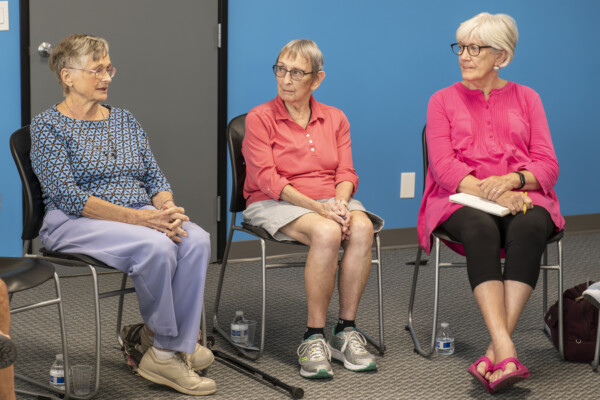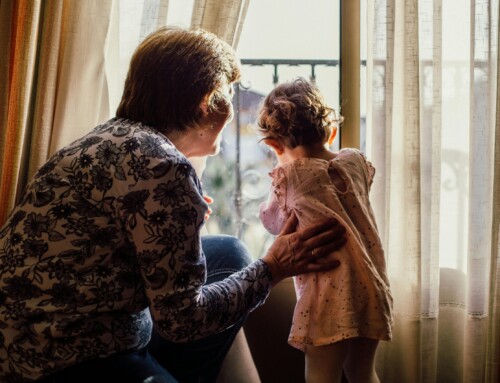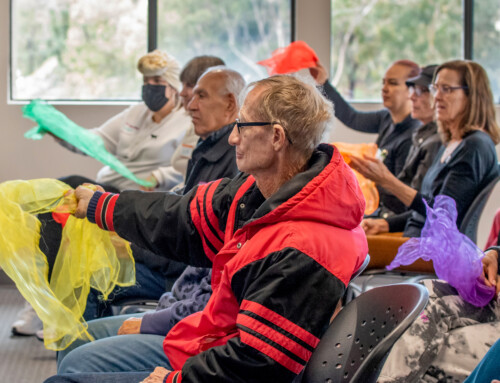
Written by Ellen Boucher, BSW / Support Group Specialist
There are many people who are uncomfortable with the idea of attending a support group. One big reason is that they think of it as a therapy group. There is actually quite a bit of difference between support groups and therapy groups.
What does a support group entail?
“We are on the same journey, although it looks a bit different for each of us.”
Support groups usually focus on one similar situation and coping with the associated challenges that cannot be changed. As we sadly know, dementia cannot be changed. However, by sharing our challenges, grief, and concerns in a support group setting, we have the opportunity to gain insight and receive support from peers.
Our support groups are set up to be a safe place to share various concerns. Because dementia is expressed so differently in each person, the experiences shared may be different, but the underlying concerns are similar. In the support group setting, no one is expected to deeply process feelings or a situation. (In fact, people are encouraged to call and speak with our Dementia Care Coaches to work on individual situations.) Within the group setting, people ask for ideas of how to handle behaviors, decisions, and feelings. The goal is for everyone to have an opportunity to check in, to share ideas, as well as both provide and receive support.
How is it different from a therapy group?
“I’m glad you guys are here. It makes me feel better that there is a place to share these things and they see the light of day.”
While therapy groups often have attendance and participation requirements, support groups are set up to be as stress-free as possible. There is no cost, and no commitments required. Alzheimer San Diego facilitators volunteer their time to go through training and to facilitate the group meetings. They are present to help the conversation flow and to make sure that everyone has an opportunity to check in. All a caregiver needs to do is show up to participate in a meeting whenever they can.
Therapy groups are designed to address specific mental health needs such as depression or anxiety. Support groups offer peer support, which is helpful for the everyday stress and grief that caregivers experience. It is important to also note that if a caregiver is involved in therapy, they can also benefit from the added support that a support group offers. There is something very special about sharing your experiences with others who understand the challenges of caregiving.
To discuss support group options, call us at 858.492.4400 to speak with one of our dementia experts who are here to help San Diego County residents and/or those caring for someone living in San Diego County (Spanish speakers available) or view our list of support groups here. Also check out our free education classes, social activities, & more.
RECOMMENDED: Your Are Not Alone: How Caregivers Help Each Other
Posted on January 13th, 2025






